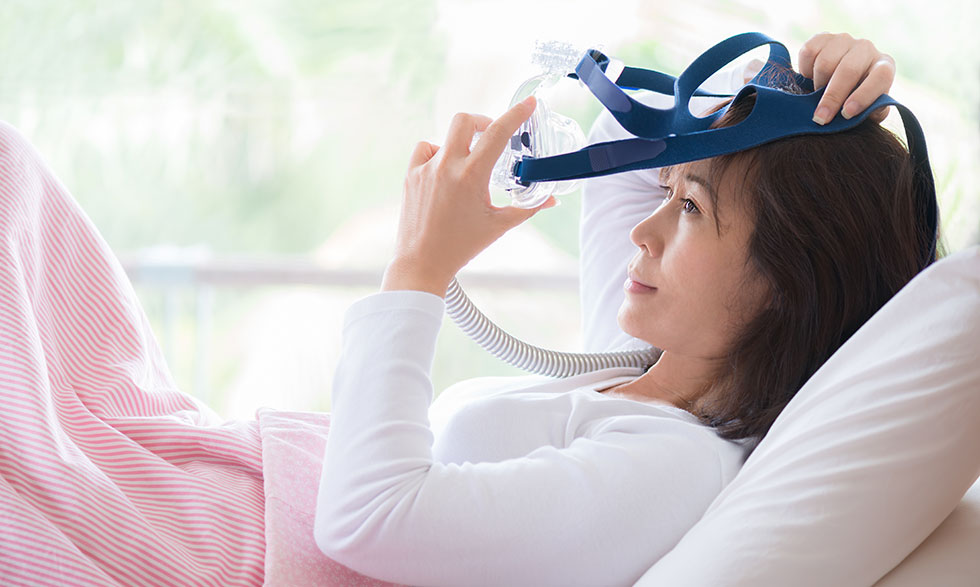Health Topics

Sleep apnea: What you need to know
What is sleep apnea?
Sleep apnea happens when your breathing stops and starts while you are sleeping.
There are three types:
- Obstructive sleep apnea is the most common type of sleep apnea. It happens when your upper airway becomes blocked and airflow is reduced or stops.
- Central sleep apnea happens when your brain doesn't properly send signals to your muscles for breathing.
- Complex sleep apnea syndrome happens when someone has both obstructive sleep apnea and central sleep apnea. It's also called treatment-emergent central sleep apnea.
What are the symptoms?
Signs and symptoms include:
- Snoring or gasping
- Reduced or skipped breathing during sleep (known as apnea events)
- Sleepiness or tiredness
What causes it?
Sleep apnea can be caused by obesity, large tonsils, premature birth, hormonal disorders, neuromuscular disorders, heart or kidney failure, and certain genetic syndromes.
How do I know if I have it?
Health care providers use sleep studies to diagnose sleep apnea. They record how many times a person has slow or stopped breathing and the number of central sleep apnea events detected in an hour.
They also measure whether oxygen levels in the blood are lower during these events, which is a sign of sleep apnea.
How is it treated?
Common sleep apnea treatments include using breathing devices, such as continuous positive airway pressure (CPAP) machines.
Lifestyle changes can also help. Those include eating a healthy diet, exercising, and for some people, losing weight.
In some cases, if sleep apnea is not diagnosed or is untreated, it can lead to serious complications such as heart attack, glaucoma, diabetes, cancer, and cognitive and behavioral disorders.
How can I learn more?
Ask your health care provider if you are eligible for a sleep study. You can read about sleep apnea research and clinical trials that help improve sleep health at NIH's National Center on Sleep Disorders Research.







